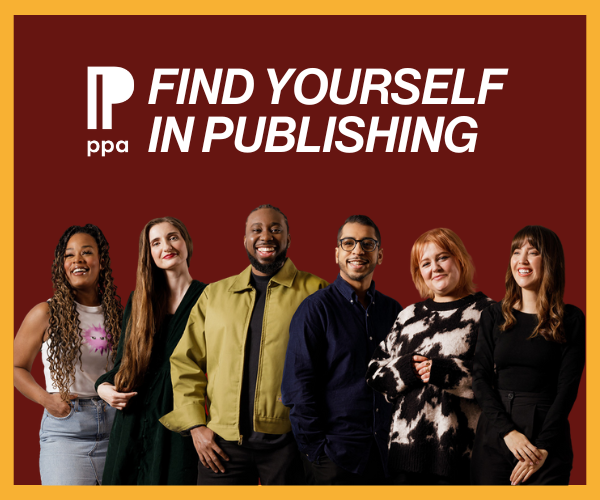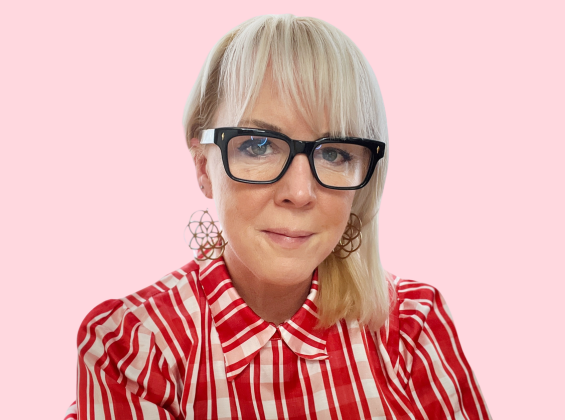What made you want to work in publishing?
I’d love to claim that I wanted to change the world for the better or that I had something important that the planet urgently needed to hear, but it was more the case that I thought that journalism looked like great fun, and journalists looked like my kind of people. And even though it is much diminished, I still think journalism is the greatest profession.
Chart your career from the start to where you are now.
I left it a little late to get started. After graduating I went to live in Spain and worked as a teacher and then as a translator. As my thirtieth birthday approached I thought that if I were going to sneak into journalism this was my last chance, and so I moved back to London and started freelancing. It was the early/mid-nineties and I had a friend at the fledgling FHM who got me some shifts there, which evolved into feature writing and editing a section. I then became Deputy Editor and Editor in 1997, coinciding perfectly with that magazine’s stratospheric growth, from sales of less than 50,000 a month when I started to an average of around 700,000 a month when I left in 1999.
From there I went to New York and launched the US edition of FHM and in 2002 I moved to Rolling Stone, then to Maxim as Editor-in-Chief when that magazine was the biggest men’s magazine in the world. In 2006 I moved back to the UK and set up a digital publishing company, which evolved into a big marketing and software development operation for the sports and betting industry.
In 2015 I went on to develop and edit an excellent free weekly health and fitness magazine for Dennis Publishing called Coach and then did various consultancy and project jobs. The first issue of Strong Words came out in February 2018.
When and why did you decide to set up Strong Words?
By 2017 it was clear that any big editor’s jobs would be going to younger people with less demanding salary expectations than mine. But as magazine journalism and editing is all I really know about or want to do, I started thinking perhaps there was a possibility of doing a magazine on my own – a proper, quality, consumer magazine, not a fanzine. If I could keep costs low by doing all the writing and editing myself it wouldn’t need to make an immense profit to keep me in Campari.
I thought there was a gap in the market for a magazine about books and newspapers, the traditional source of information about books, have seen their square footage decimated as advertising has abandoned them. I believe books are one of life’s great pleasures, but too many publications reviewing books slip into the sort of dreary academic “discourse” that makes the whole process feel like homework, whereas I think books should be just as interesting to read about as they are to read. So Strong Words’ brand values are to be useful (several times per issue readers involuntarily shout, “That’s the book for me!”); entertaining, and inspiring or enriching (books are one of the few reliable counters to life’s downward pressures, especially in this plague year.) Strong Words is also a print-only publication, because I believe in print’s superpowers to make a connection.
You work seven days a week, read the equivalent of War and Peace every week and write the equivalent of The Great Gatsby every issue. What does each day of your week look like in order to achieve this?
I just work all the time, but it’s a pleasure to do. I work at home, but most nights I spend at my girlfriend’s house, six miles away. So I get up around 5.45, walk to mine, which takes an hour and a half, and listen to audio books. I start at about 8, work until 6, then walk back again. The magazine is quite formatted, and Strong Words deals principally with new books, so it’s just a question of picking the books I want to cover each month, reading them, setting up and conducting interviews and then putting the whole thing together in as beguiling a fashion as imagination permits. Occasionally I go and meet people who might help me sell a few more copies. It is one of the enduring miracles of magazine production that no matter what, they always reach the printer on time, and Strong Words is no different.
How do you find that balance between creating the magazine and marketing it? How has the way you marketed it before lockdown changed?
Like most people in publishing, I am good at one aspect of it, in my case editorial, but virtually clueless in all the other skills required to publish successfully. My respect for marketing skills has undergone a 180º revision since I started publishing Strong Words. I’ve had help from old colleagues and have employed some very part time marketing assistance, but a more robust marketing effort is top of the list for 2021. The only real change forced on me by lockdown has been having to drop newsstand. As most of my newsstand copies were at Smiths travel outlets at rail stations and airports, it seemed foolish to keep sending them out to empty shops, and I haven’t yet gone back. But most of my sales of Strong Words are subscription anyway, so it hasn’t caused too much of a dent.
What is your favourite part of the process when creating the magazine?
There’s no one stage that creates a particular frisson, although I do quite look forward to lunchtime. But while I’ve always got plenty of energy for reading books and writing about them, or coming up with a decent headline, or finding a good picture, my powers of concentration shut down almost immediately when confronted with anything to do with digital marketing. Having to deal with the Facebook or Google robots sends me straight into a coma.
Strong Words was previously a tabloid newspaper – why did you change the format to a magazine and what has it done for the title?
The tabloid newspaper was in some ways the origin of the whole project – when someone showed me an online printing operation called Newspaper Club that prints quality newspapers in any quantity, that did away with the whole stage of buying paper and the back and forth with printers. I changed to a magazine format when I realised retailers had nowhere to rack a magazine about books that was printed as a tabloid. So the first three issues of Strong Words now have a novelty value of being printed as a tabloid on newsprint, and there are still a few left, should collectors be curious.
What has been a highlight read in recent months?
I was recently blown away by the intensity of Terri White’s memoir about growing up in an abusive, alcoholic home and then turning the alcoholic abuse on herself as an adult. I massively enjoyed William Feaver’s giant biography of Lucian Freud and I like almost everything published by Gallic, who do French novels in translation. Everything covered in Strong Words is written about with enthusiasm and positivity. If there’s something I don’t like (and there’s a lot) then I don’t cover it. I’d rather give space to books I feel people will be excited to hear about and want to buy.
What’s on your radar?
I’m going to start doing a Strong Words podcast before the end of the year, but it’s really a question of keeping up the search for the northwest passage of marketing gold – trying to find that one method of generating reliable sales at an affordable price. There’s not much that keeps me awake (and if people in the street do, I’m quite happy to shout at them) but obviously the plague has put a hold on all involvement at festivals, plus events we were doing with the Groucho Club in conversation with authors. They are great places for making people aware that there is a magazine called Strong Words, that it is about books, that it is for them and they must buy it immediately.
Other than Strong Words, what magazine would you stockpile?
I’m not a stockpiler. Apart from books, I’ve got no time for collections or general hoarding. But I think Nicola Jeal’s Saturday Times magazine is by far the best supplement and the envy of all others. And my admiration for The Week and Private Eye never dims: tone + format = eternal happiness.
Strong Words subscriptions, single copies and back issues are available here.
The first issue is free to new UK subscribers.









